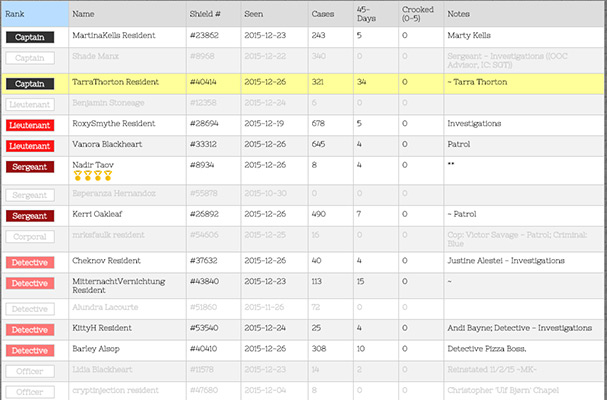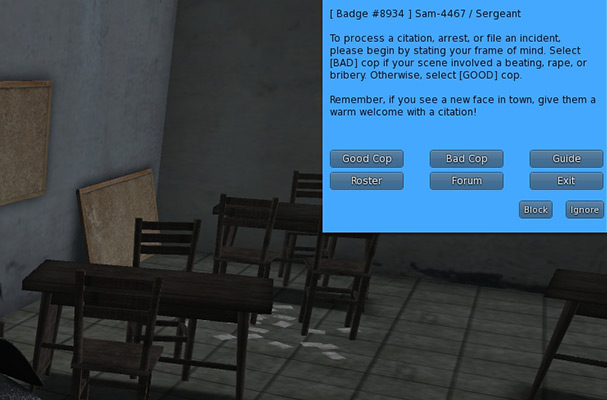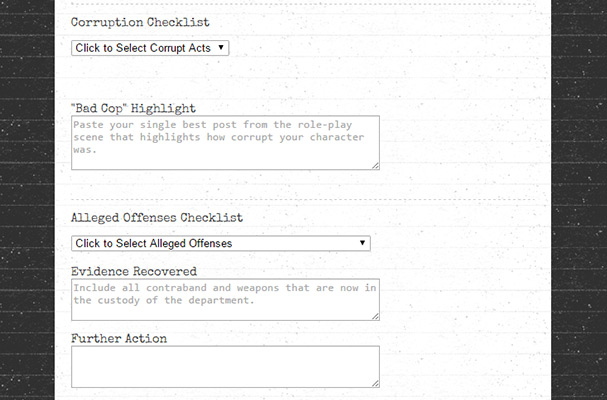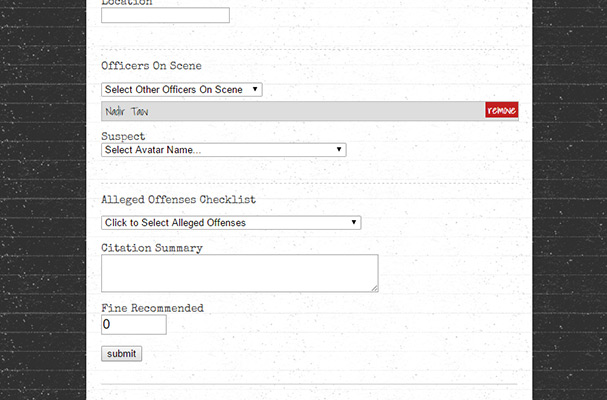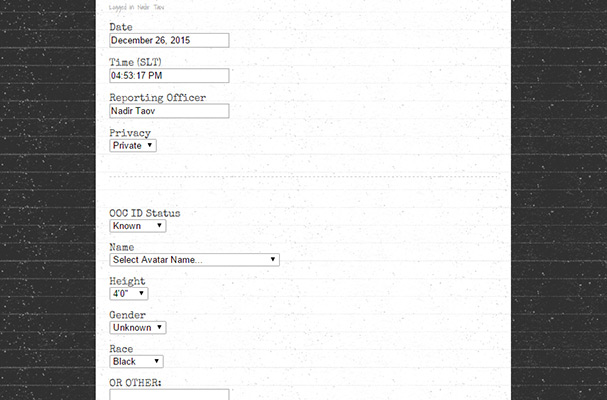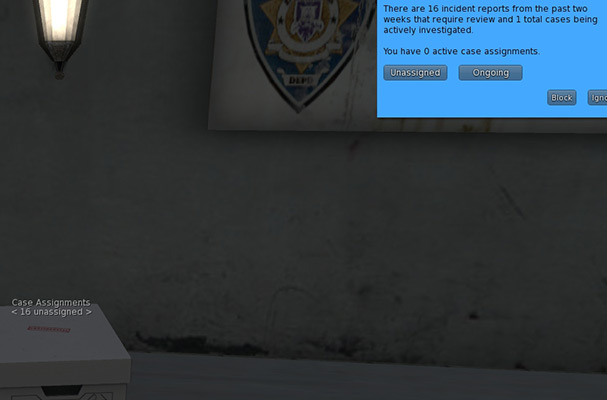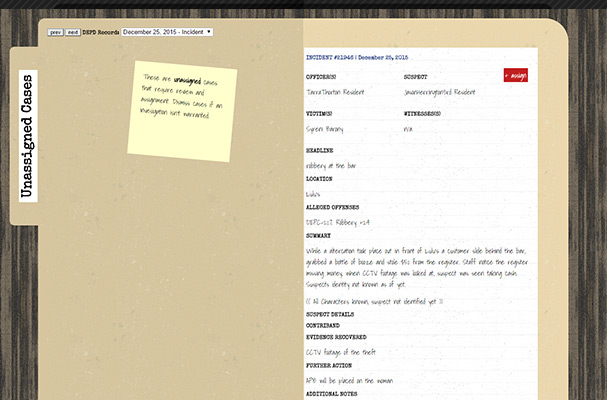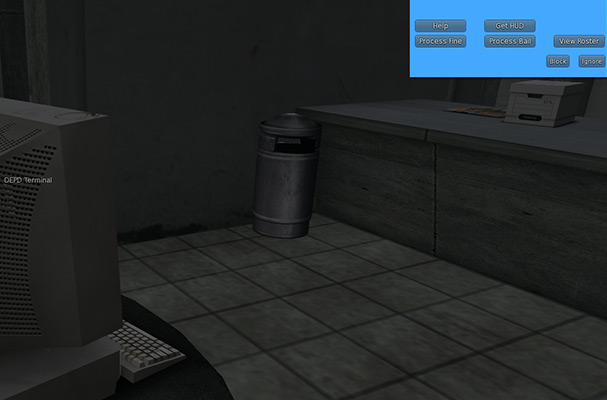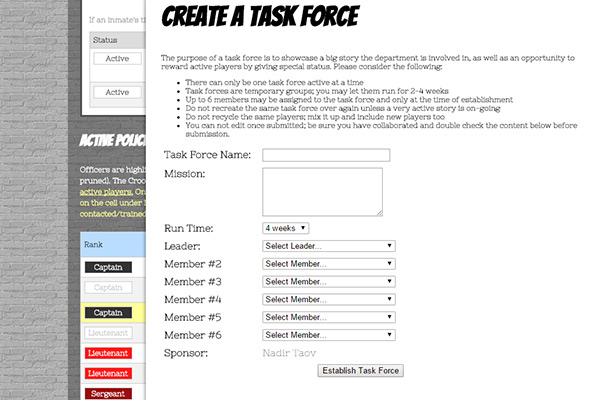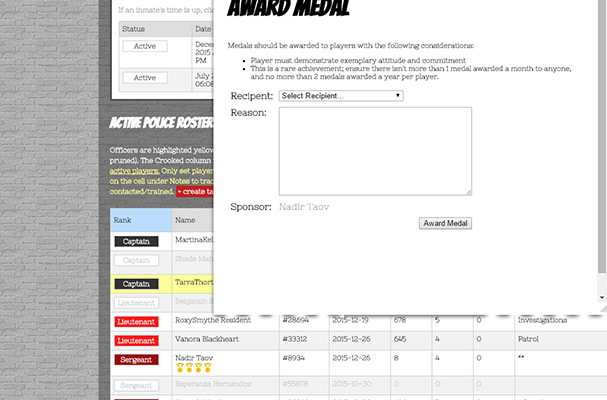Home › Forums › Municipal Departments › Police › DEPD 2016 HUD & Features
This topic contains 4 replies, has 2 voices, and was last updated by ![]() steph-lowensztark 9 years, 8 months ago.
steph-lowensztark 9 years, 8 months ago.
| Author | Posts |
|---|---|
| Author | Posts |
Nadir TaovsaidDEPD OverhaulAfter extensive discussions, surveys, and interviews over the past several months, we designed an all new police department, new policing features, and updated the existing ones. Every feature was re-envisioned with the single purpose of driving role-play stories and creating role-play opportunities between players. In order to best explain this, we recommend you take the time to read the new DEPD Guide in its entirety; I created this special “Migration” version to call out changes to existing workflows and included screenshots to provide better context. We hope you find these changes as exciting as it was to design them. Report your bugs here. Happy holidays! Dead End Police GuideNavigate:
CharterThe police department is at the heart of the criminal role-play in Dead End. Since many policing role-play features such as Citations, Arrests, and Cases are designed to award roles to the general population, it’s important to understand the following charter:
UniformIt is provided at no charge (accessible in the locker room) for it’s members. Alterations should be approved by supervising officers. We ask that players keep in mind grooming requirements of their local law enforcement as a guide. Standard black uniform: shirt or sweater, cargo pants, boots, basic kevlar vest, duty belt. Plain clothes detectives are expected to dress professionally. If you look like you should be on a pole, it will be arranged. WeaponsThe reality in which Dead End City exists in is such that firearms are rare and extremely difficult to acquire by the public. While the threat is real, officers are issued pepper spray, trained to wield batons, and may deploy electroshock weapons (ie. Taser). In special planned scenes involving raids, training, riot control, and stand-offs, lieutenants and sergeants may allow the use of shotguns with bean-bag rounds and flashbangs. VehiclePlease see the vehicle permit guide for requirements. Roles & Responsibilities
PromotionsRookies are often promoted to Officers once they’ve been sufficiently onboarded which includes participation in police reports, demonstrate knowledge in all policing protocol, guidelines, and role-play etiquette. To move into advanced roles, besides activity, these promotions are primarily based on how well a player is able to role-play with others, their attitude in and outside the group, and their ability to extend role-play to others. SystemsRoster (HUD) The group roster is designed to help identify active police players, special duties, inmate players and their sentencing time left, recent case assignment, preference in corruption, and the current task force established. December 2015 changes include:
Bad Cop vs Good Cop (HUD) Before writing an incident report, arresting, issuing a citation, or submitting an all-point bulletin (APB), players must select their character’s “state of mind”. If Bad Cop is selected, the report will display additional fields to identify the type of corruption the scene included as well as an opportunity to showcase the player’s best post from the scene that highlights the corruption. While writing a citation, the officer can use their discretion to set the final price of the fine, offering heavy discounts for “services rendered”. December 2015 New Feature! Radio Dispatch (HUD) Clicking on the radio will allow players to enter the full avatar username of another player to check if their character in custody has any priors (ie. number of previous arrests or if a warrant is issued). This procedure may only be done as part of a scene when an officer has stopped someone for questioning. December 2015 changes include:
Writing Report (HUD) Reporting an incident or arrest is covered in this single report feature and is the most important function of an officer. When a report is submitted after an arrest or incident, both players in the police and in the public will be awarded cred towards earning new roles and unlocking features of the sim. Follow the instructions within each field and submit relevant details. DO NOT copy/paste posts – we are looking brief summaries so other characters like detectives and lawyers can follow up. Writing Citation (HUD) Citations are designed to engage new players on the sim; it’s a tool to be used to harass civilians and engage them into role-play without serious consequences. When a citation is submitted, the automated Court Mailer will send them an in-character notification of mail received regarding their fines and instructing them to visit the station to pay them off. Issuing an APB (HUD) All-Point Bulletins (APBs) allow officers to issue alerts for suspects at-large. Officers in the field can use the description of the character defined to apprehend them if found in public. APBs are considered active for one week. Case Assignments Despite patrol duties, an important function of the department is for detectives and officers to team up and resolve cases. Incident reports submitted by officers are filed for review by lieutenants. If a report requires follow up, a lieutenant will assign up to two active detectives and all officers involved in the report to begin investigation. Detective and supporting officers assigned to a case will receive a notification in-world and can track their case assignments by accessing the Case Assignment boxes at the station. The assignment process is handled by lieutenants (major crimes only) and sergeants (all other crimes) as they review all submitted incidents. During the review process, most cases will likely be dismissed to maintain detectives’ focus on stories that are likely to extend into role-play and maintain the corrupt nature of the department. While on a case, role-play often involves doing interviews, writing and appending case notes, arresting individuals for questioning, bargaining release between lawyers and cops, and/or moving the role-play into a trial. December 2015 New Feature!
Police Records All citations, incident, and arrest reports are filed in the station. Each record can be searched by avatar usernames which will result in any records with a reference to the individual. Records of arrests that were completed through either time SERVED or BAILED will be stamped as such. Citations that are still payable will allow officers to process payment, or display a DELINQUENT (not paid in time) or PAID stamp. A stack of cold cases can also be accessed, allowing players to review assigned cases that were automatically turned cold when no updates were appended, or if the detectives had abandoned their search and updated its status to cold. December 2015 changes:
Payment Collection (Bail / Fine) The police terminal at the station enables all officers to role-play the payment transaction between civilians either posting bail for an inmate or those who are paying fines associated to citations. To post bail, the option to process bail transactions is found under the “Inmates” tab on the roster for each jailed player. Use the recommended range of payment due which is 10% of the total bail. To process fines resulting from citations, the option through the terminal will allow you to search through records based on the offender’s name. On the citation report, you’ll either have the option to process payment or discover a DELINQUENT stamp on it indicating that payment is no longer an option and likely have a bench warrant issued for non-payment. December 2015 changes include:
Task Force A task force is a grouping of officers on the roster that are assigned to a time-set mission (2-4 weeks). The mission is a story arc involving the police department that can be tracked via the roster. For now, only one task force may be running at a time. Whether it’s attention on dealing with a particular faction, setting up stings, or just general show of force on the streets, Lieutenants are responsible for setting up the story, assigning members (mix of new and old players who are active), and supporting communication via notices. December 2015 New Feature! Medals Players who demonstrate extraordinary attitude, commitment, and further the stories of others may have an opportunity to be decorated with a medal that appears next to their name on the roster. It is a rare achievement and the decision to award one comes with a deliberation between senior officers and the admins behind the Captain. Medals are also permanent so if a player leaves the group and returns, they will retain their decorated status. December 2015 New Feature! RP TipsApplication ProcessA solid understanding of RP etiquette and earning the basic Denizen role is a prerequisite. To join the police department, players can visit the station lobby and use the recruitment poster to apply. Each application is reviewed by Nadir and may take a few days to process. OnboardingOnce accepted, new players will receive a group invite to the DE Law Enforcement group with the starting role of Rookie. This role will allow players to access the station doors and computer terminals. We recommend the following steps:
CommunicationUse the police group chat to radio in all activity, signing off with your call sign (see in-world HUD menu), request backup if possible, and post questions for clarification. We encourage players to proactively reach out to corporals, sergeants and lieutenants as they are always there to help and ensure everyone is having a fun in the group. ArrestsThe procedural role-play involving an arrest should include the dictation of the Miranda Rights with a flare for asserting police dominance. Consider the following recommendations:
Future FeaturesThe next phase of feature rollouts may include the following ideas:
|
|
steph-lowensztarksaidSign in at the very top to read this reply. ツ |
|
Nadir TaovsaidSign in at the very top to read this reply. ツ |
|
steph-lowensztarksaidSign in at the very top to read this reply. ツ |
|
steph-lowensztarksaidSign in at the very top to read this reply. ツ |
|
You must be logged in to reply to this topic.

